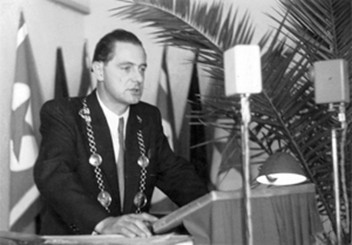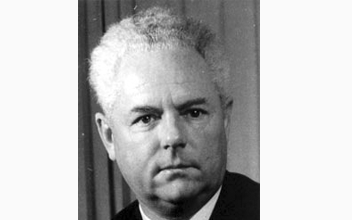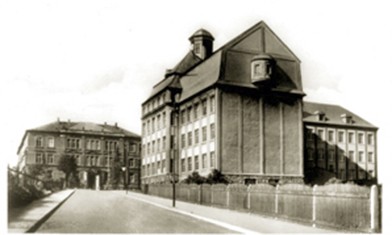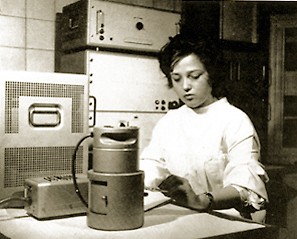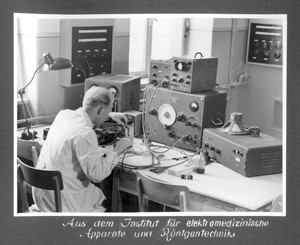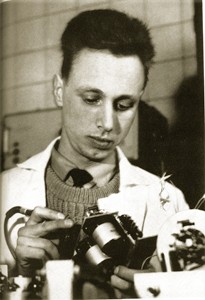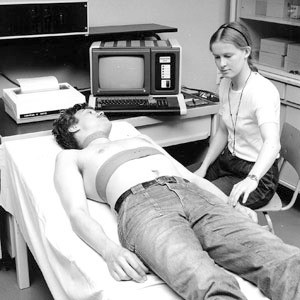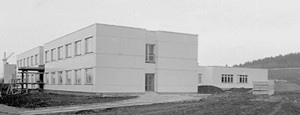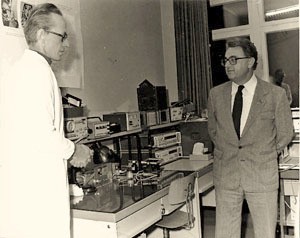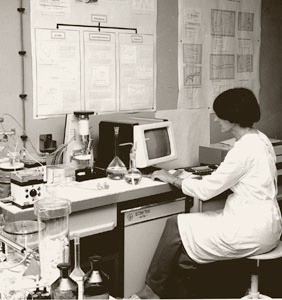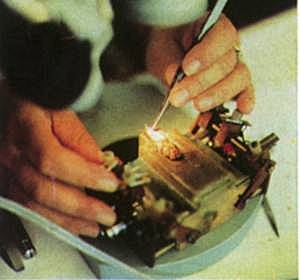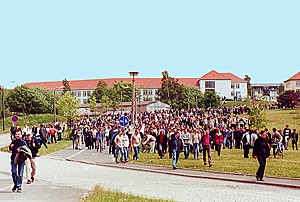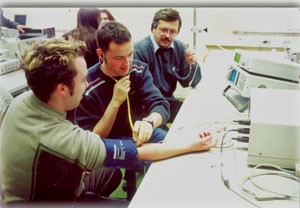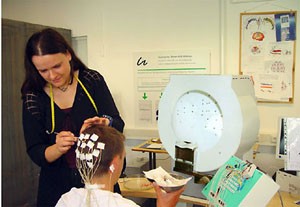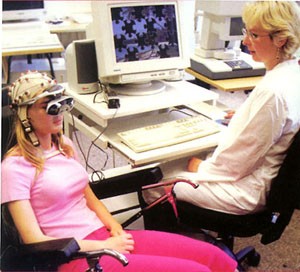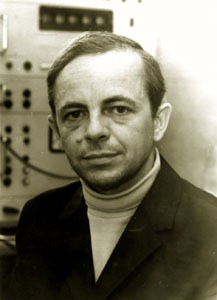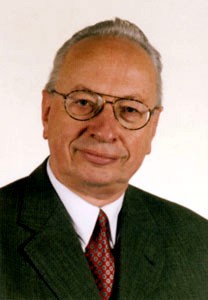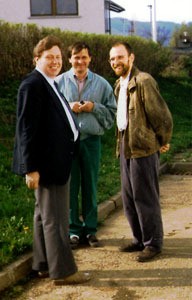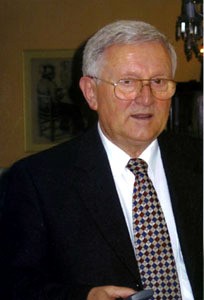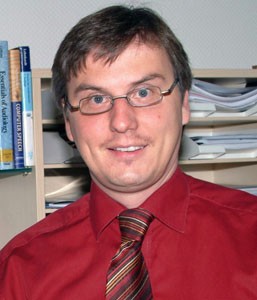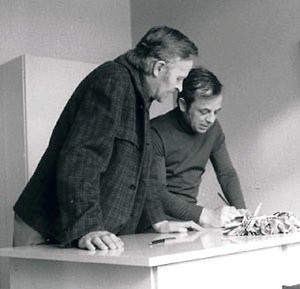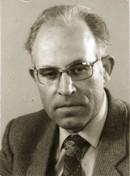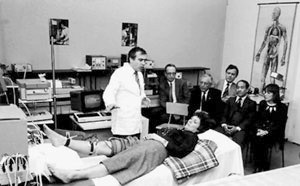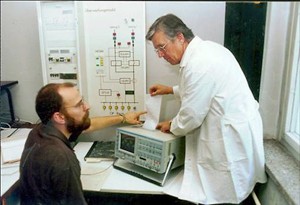The Initial Phase – Educational Offerings
„Of even greater importance however was the education of experts for this specific field whose absence had proved to be a factor badly preventing progress.“ Friedrich Blüthgen, 1962
The first academic Biomedical Engineering on-campus programme in Europe is launched already in the founding year of the Institute. The special course „Electromedical and Radiological Engineering“ as part of the main course of Electrical Engineering was first offered in the summer semester of 1954.
Already the first educational concept is oriented towards the training of capable engineers who are proficient in their field and additionally familiar with the fundamentals of their medical application area and with the specifics of engineering solutions to be applied at a living biological system.
The graduates at first predominantly find their occupational field in medical technology companies but later on increasingly in hospitals and medical research institutions as direct partners of the physician.
It is the core concern of the research activities of the Institute in the initial phase
„....to create fundamentals on which developments of the medical-technical industry can be based.“ - Friedrich Blüthgen, 1962
In accordance with this guiding principle R&D-fields such as medical electronics, blood corpuscle counting, but also radiation application and dosimetry are emerging.


